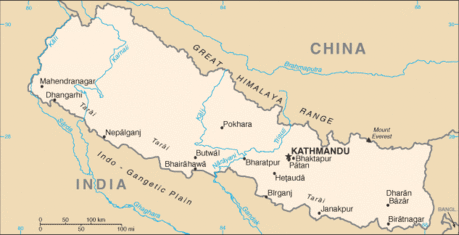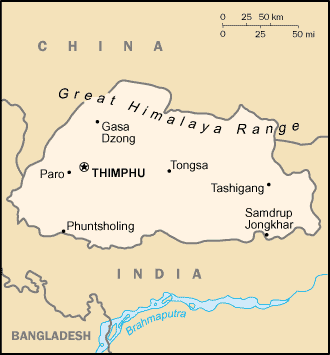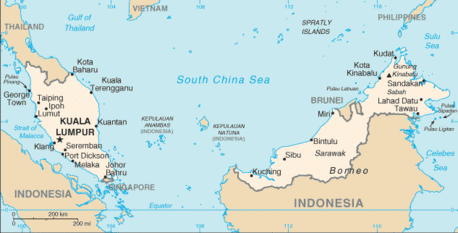Frequently Asked Questions about Travel in Asia
Do I need a visa to visit Hong Kong?
For Canadian and U.S. passport holders, a visa is not required for Hong Kong if your stay is less than 90 days under the tourist designation. For passport holders of other nationalities, please consult with your nearest PRC (People’s Republic of China) embassy or consulate.
China Visa Office in Hong Kong
7th Floor, Lower Block, China Resources Building
No. 26 Harbour Road, Wanchai, Hong Kong SAR
Tel: 852 3413 2300
What is the local currency? How do I obtain it?
Every nation in Asia we serve has their own currency. Most nations have ready access to ATMs that dispense local currency and most hotels we utilize can exchange foreign currency into local currency. For current exchange rates in the nation you are visiting, check the website xe.com
What is the electricity voltage is Asia? Is it the same as North America?
No, the electrical voltage in almost every Asian country is different than the North American 110 volt alternating current. Electricity in most nations is at least 220 Volts. You should pack an adapter if you decide to bring any type of electronics with you during the trip. The electrical outlets are also different from nation to nation. USB outlets are the same as North America.
How do I make an International call when traveling overseas?
There are several ways to make calls while traveling in China or elsewhere in Asia. Please review the information listed below and you can decide what will be best for you based on convenience and budget. As you can see, some options are very inexpensive but may require more work, such as creating a Skype account and having a good Wi-Fi connection. Other options may be more convenient allowing you to call from any location at anytime of day with good cell phone reception, but will be more expensive. However, it is important to note that good Wi-Fi is easily accessible in Asia unless you are in a very remote area and all hotels in or near cities usually have excellent connections.
1. Skype
The most affordable way to make a call when traveling in China and Asia is to use Skype. First, you will need to create an account at http://www.skype.com/en/ and download the Skype app on your smartphone, tablet, and/or laptop. With Skype you can make free calls from anywhere in the world to someone else on Skype, but it requires a stable Wi-Fi connection or mobile data plan. You can easily call someone’s mobile or landline via Skype at low per minute rates. The price depends on the country in which you are calling to, not the country you are calling from. There are two ways to put money in your Skype account, with credit (i.e. $10 at a time) or a monthly subscription. Unless you need to call overseas phone numbers on a regular basis, Skype credit is the best option. You can set up your payment to automatically refill your account when it is getting low (i.e. another $10) and therefore, you will not get cut off from someone you are speaking to. However, a one-month calling plan may be more cost affective if you need to make lots of calls while overseas.
2. International Calling Plan
If you are at all concerned about Wi-Fi connections or feel the need be able to make international calls anytime of the day, then you may want to consider purchasing an International Travel Package from your mobile phone carrier. However, it is important to note that this options is much more expensive than using Skype.
3. Local SIM Card
You can also buy a temporary local SIM card upon arrival at the airport or at a convenience store. If you are using a smartphone then it is important to make sure that your mobile phone is unlocked before you depart the country.
4. Hotel Room Phone
There will always be a phone in your hotel room and the vast majority of hotels in Asia allow for international calls. Please check with the front desk for instructions upon check-in. Rates will vary from one hotel to the next, but expect to pay anywhere from $1.00 to $2.00 per minute. International calls will be added to your bill, payable upon checkout. However, local calls are typically free of charge, so feel free to call you tour guide if you require assistance.
What clothing should I pack for travel in Asia?
One good rule of thumb to follow is to pack lightly and bring casual clothes. A sturdy, comfortable pair of walking shoes is an absolute must. A sports coat worn with a nice shirt for men, and one or two dresses or pantsuits for women will suit the most formal occasions to be encountered in most Asian nations. Travelers should bring shirts, sweaters and jackets that can be worn in layers to suit a range of climates and precipitation. Shorts (for both men and women) are fine for summer days though not recommended when visiting religious shrines. Remember to dress for comfort, not for style. Some nations have dress codes for entering temples, but they rarely extend beyond covering the head, shoulders and legs while inside. In Asia it is hard to be either over or under dressed.
Do I need a visa to visit Asian nations?
For Canadian and U.S. passport holders, a tourist visa is not required for Japan, South Korea, Taiwan, Thailand, Malaysia, Singapore, Philippines, Mongolia, Hong Kong, or Macau, if your stay is less than 60-90 days under the tourist designation. For passport holders of other nationalities, please consult the local embassy of the nation you wish to visit for their requirements. China, Vietnam, India, Laos, Cambodia, Myanmar, Sri Lanka, Bhutan and Nepal require visas, some of which can be issued upon arrival. Again, check with the embassy of the nation you intend to visit for up to date information.
What is the tipping practice for visitors to Asia?
Customs in the many Asian nations we serve vary, but in general it is a common practice for visitors to tip the tour guide and driver in recognition of their good service. A hotel bellboy expects your tips as well. It is not customary to leave tips at hotels or local restaurants as the bill usually includes a 10-15% service charge. More detailed information about tipping practices in Asia is included in your Welcome Packet from Access Asia Tours.
Do I need any shots or immunizations to travel to Asia?
There are no particular immunizations that are required for entry into the Asian nations we serve unless the traveler is coming from a yellow fever infected area. The Canadian and U.S. disease control and prevention authorities recommend that all travelers have current polio and tetanus immunizations. For up to date information, check the Center for Disease Control website www.cdc.org to see if the nation or regions you are visiting have any recommended vaccinations. For traveling into the countryside and remote areas, gamma globulin is also recommended to combat hepatitis A, and typhoid fever immunizations are recommended. It is very important that you consult your own doctor or local clinic for more information. We advise that you bring along a supply of antibiotics, an anti-diarrhea agent and any other prescription drugs required by a medical condition.
Can I drink the tap water in Asia?
Although many local Asian nations do drink the tap water, we recommend that you drink only bottled water or boiled water. Bottled water is available everywhere. Tourists typically use the tap water in hotels to brush their teeth as it is not swallowed.
When is the best time to visit Asia?
Asia is the world’s largest continent and thus has the most diverse and extreme climate differences on earth. Most of our Asian destinations can be visited throughout the year with a very few extreme hot or cold exceptions. We plan our travel experiences based on where in Asia you are going and during what season. For example, Southeast Asia should be avoided during the spring monsoon season, Mongolia avoided in winter due to extreme cold, and India in summer due to high heat and humidity.
Deciding when to visit Asia depends on where you wish to visit, what type of weather you enjoy, and how much of a bargain you expect to net due to low season pricing.
In general, the best place to visit in winter is South or Southeast Asia. Northeast and Central Asia are not as fair during this time. Spring and Fall offer mild weather in most Asian destinations, although there are frequent holiday and festival periods that are both interesting to see and challenging to endure due to increased local tourism. Summer is good everywhere except in the monsoon prone tropical destinations and the arid deserts of India and China.
Are there baggage limits on flights in Asia?
For most domestic or international flights within Asia, you are allowed to check one piece of luggage. The limitation is 20 Kilograms (44 pounds) total. A fee may be imposed for extra pieces or excessive weight, You can also take one carry-on plus a backpack or tote bag, all of which should fit in the overhead compartment or under your seat.















